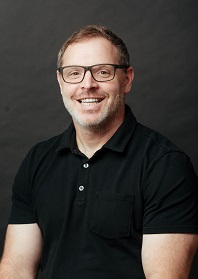
PHILADELPHIA (November 22, 2019) – There are significant differences in breast cancer survival depending on where women live and their socioeconomic status, according to new mapping data from researchers at Fox Chase Cancer Center.
“Being able to see a map of an area demonstrating significant differences in survival can really influence people’s perspective,” said Kevin Henry, PhD, a collaborating member of the Fox Chase Cancer Prevention and Control program and an associate professor in the Department of Geography and Urban Studies at Temple University.
Although Henry and Shannon Lynch, PhD, MPH, an assistant professor in the Cancer Prevention and Control program who also worked on the research, recognize that significant strides have been made in cancer control due to more education, improved screening, early diagnosis, and targeted therapies, disparities in survival rates based on a number of demographic factors persist.
For the study, survival time was calculated for 27,078 women in New Jersey diagnosed with invasive breast cancer between 2010 and 2014 and followed to December 31, 2015. The researchers used various models to estimate spatial variation in hazard rates and identify geographic areas of higher risk of death from breast cancer.
“The spatial models indicated breast cancer survival disparities are a result of combined individual-level and neighborhood socioeconomic factors,” said Daniel Wiese, the lead author of the study and a graduate student in the Department of Geography and Urban Studies at Temple University. “Thus, more research is needed to understand the moderating pathways in which neighborhood socioeconomic status influences breast cancer survival.”
With more detailed analyses such as his method of geospatial mapping, Wiese hopes to bring more awareness to the importance of geographic location in relation to, but independent of, neighborhood socioeconomic inequalities, in addition to individual characteristics such as age, race, or ethnicity.
He added that there is a strength inherent in illustrating geographical variations because it communicates starkly where there are gaps in effective cancer control to those with the ability to allocate resources better, such as state representatives.
The analysis of the data by Wiese and his fellow researchers provides a model for further study of the complex factors associated with cancer and survival rates, and is also encouraging because it further supports established theories of breast cancer disparities. “Cancer control efforts can begin to address the full suite of modifiable factors at the area level to reduce breast cancer disparities,” the researchers concluded.
The study, “The Impact of Neighborhood Economic and Racial Inequalities on the Spatial Variation of Breast Cancer Survival in New Jersey,” was published in Cancer Epidemiology, Biomarkers & Prevention, a journal of the American Association for Cancer Research.